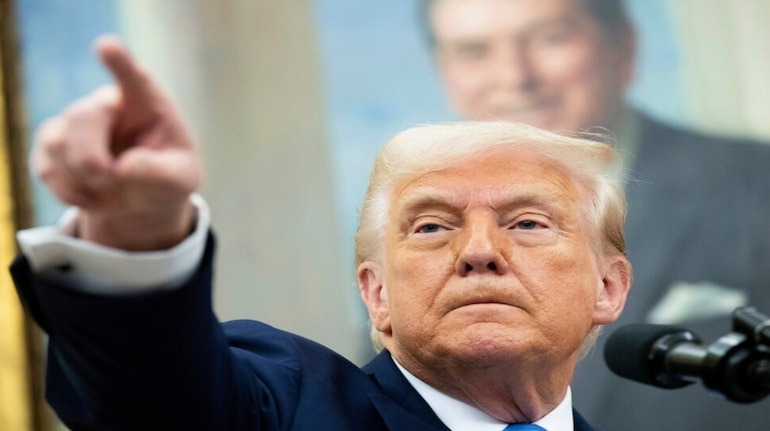
President Donald Trump’s upcoming "Liberation Day" tariffs are sparking diplomatic upheaval, pushing once-loyal allies such as Germany, Canada, and Greenland to publicly distance themselves from the United States. The policy, reportedly aimed at leveraging U.S. military protection and trade access, is straining the very alliances that have supported U.S. global dominance since World War II, The New York Times reported.
U.S. Allies Push Back: A Breakdown in Longstanding Partnerships
Germany’s new chancellor is planning to reduce reliance on the U.S. in defense and trade.
Canada’s prime minister declared that the “old relationship” with Washington is “over.”
Greenland, home to critical U.S. airbases, dismissed Trump’s expansionist ambitions, asserting, “We do not belong to anyone else.”
These statements reflect growing frustration over Trump’s unilateral policies—including tariffs on allies, demands for increased defense payments, and threats of military withdrawal.
The Three-Pillar Strategy in Crisis
Trump’s moves are threatening the core pillars of U.S. postwar foreign policy:
Mutual defense via alliances like NATO
Open trade and global economic cooperation
Shared democratic values
At the heart of the backlash are concerns that Trump’s America First agenda is morphing into an isolationist doctrine with permanent trade barriers and transactional diplomacy.
Tensions Within NATO Reach Boiling Point
Internal communications leaked from the administration show top officials, including Vice President JD Vance and Defense Secretary Pete Hegseth, expressing disdain for European allies:
Vance: “I just hate bailing out Europe again.”
Hegseth: “I fully share your loathing of European freeloading. It’s PATHETIC.”
Trump’s rhetoric and policy shifts have fueled speculation that NATO allies may create independent security frameworks, including European-led peacekeeping in Ukraine and expanded nuclear deterrence from France and the UK.
Normalization with Russia Raises Further Alarm
Trump’s outreach to Russia has deepened divisions within NATO. Allies fear this may undermine efforts to hold Moscow accountable for the invasion of Ukraine, further destabilizing global trust in U.S. leadership.
Liberation Day Tariffs: Permanent Shift in U.S. Economic Policy
Unlike past tariffs used as bargaining tools, Trump’s Liberation Day tariffs are being framed as a permanent fixture of economic policy. Commerce Secretary Howard Lutnick stated the goal is to balance the federal budget and shift costs onto foreign economies.
“Let the people who live off our economy pay,” Lutnick said.
However, economists warn this could trigger retaliatory tariffs, harm U.S. agriculture and manufacturing, and accelerate global de-dollarization.
Allies Prepare for a Post-American World
Faced with an unpredictable U.S., many allies are increasing defense budgets and quietly exploring new military and trade coalitions that exclude America.
Former National Security official Kori Schake posed a chilling question:
“Who will help us when we need allied forces for operations critical to U.S. security? Who will sympathize with us if there's another 9/11?”
That question is no longer theoretical—it is shaping global policy planning in real time.
Read More: A Legal Storm in Dhaka Sheikh Hasina and Family Sentenced Ahead of Elections

 Share
Share



